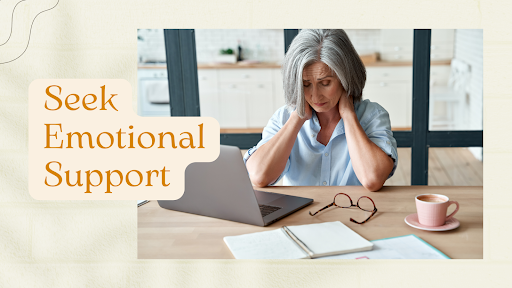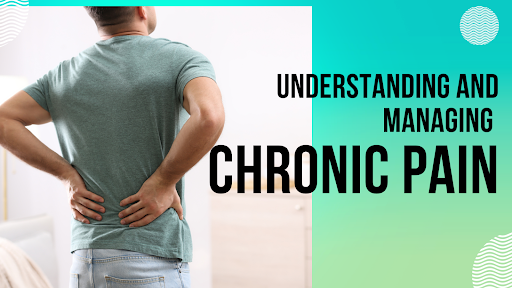Dealing with constant pain daily can be challenging. It affects not only physical well-being but also emotional and mental health. Whether you are a patient experiencing chronic pain or a caregiver supporting someone in pain, it’s essential to understand and manage this condition effectively. This guide aims to provide simple and practical advice to help patients and caregivers navigate the challenges of chronic pain.
Educate Yourself: Knowledge is Power. Begin by learning about chronic pain and its various causes and treatments. It’s important to distinguish between acute and chronic pain and common conditions leading to chronic pain, such as fibromyalgia, arthritis or back problems. Educate yourself about available treatment options, including medications, physical therapy, alternative therapies, and lifestyle modifications.
Communicate Effectively with Healthcare Providers: Be Your Advocate Open and honest communication with your healthcare providers is crucial. Clearly express your pain levels, describe how pain affects your daily life, and discuss any concerns or questions you may have. Work together to develop a comprehensive pain management plan tailored to your needs.

What else:
Explore Multimodal Approaches: Combining Treatments Chronic pain often requires a multimodal approach, combining various treatments to improve pain control and overall quality of life. This may include a combination of medications, physical therapy, relaxation techniques, mindfulness practices, and alternative therapies such as acupuncture or massage. Be open to trying different approaches to find what works best for you.
Prioritize Self-Care: Nurture Your Well-Being Self-care is vital in managing chronic pain. Prioritize activities that promote physical and mental well-being, such as regular exercise, healthy eating, adequate sleep, and meditation or deep breathing exercises. Find activities that bring you joy and engage in them regularly, whether spending time with loved ones, pursuing hobbies, or engaging in creative outlets.
Pace Yourself: Balance Activity and Rest Finding the right balance between activity and rest is essential when living with chronic pain. Listen to your body and pace yourself accordingly. Break tasks into smaller, manageable segments, and consider using assistive devices or adaptive strategies to conserve energy.
Seek Emotional Support: Addressing the Psychological Impact Chronic pain can take a toll on mental and emotional well-being. It’s essential to address these aspects of pain management as well. Seek counselling or therapy to develop coping strategies, manage stress, and address any underlying psychological issues. Practice relaxation techniques, engage in activities that uplift your mood, and foster a positive mindset.

Maintain a Positive Outlook: Hope and Resilience Chronic pain can be challenging, but maintaining a positive outlook is essential. Cultivate hope and resilience by focusing on what you can control, setting realistic goals, and celebrating small victories. Surround yourself with positivity and engage in positive affirmations or gratitude practices to shift your mindset.
The final thoughts
Living with chronic pain requires patience, self-compassion, and an active approach to pain management. You can better understand and manage chronic pain by educating yourself, building a support network, communicating with healthcare providers, and prioritizing self-care. Remember, your pain does not define you, and with the right strategies and support, you can lead a fulfilling life despite the challenges.
Utpal Khot
Copyright © Utpal K
1. If you share this post, please give due credit to the author Utpal Khot
2. Please DO NOT PLAGIARIZE. Please DO NOT Cut/Copy/Paste this post
© Utpal K., all rights reserved.
Copyright Notice: No part of this Blog may be reproduced or utilized in any form or by any means, electronic or mechanical including photocopying or by any information storage and retrieval system, without permission in writing from the Blog Author Utpal Khot who holds the copyright.





